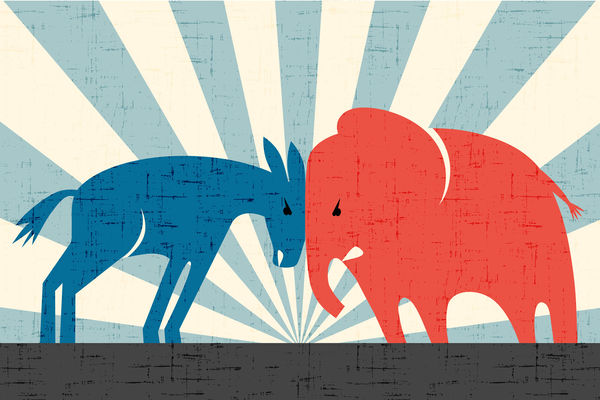Less than 24 hours after the first presidential debate, everyone I spoke with said more or less the same thing: "I don't know who won, but that was shameful."
Now, the cynical side of me thinks that we are all lying to ourselves, and that a train wreck was exactly what we wanted to see. The Powers That Be provided us with a spectacle we love to hate, and we were all too happy to hate it. Unfortunately, viewing the debate as twisted entertainment is only possible if you don’t have any real stake in the issues being discussed. Many of us at Furman come from fairly privileged backgrounds. If the nation's healthcare policy does not affect us personally, our ears do not perk up when we hear about healthcare. It is hard to make yourself care about it in the same way you might care about, say, your GPA. It just is not personal, so you can afford to ignore the issue and focus only on the uncivil tone.
Nevertheless, the tone is telling. A person of privilege myself, Trump struck me as a cowboy, a Captain Kirk. His constant interruptions and consistent disregard for the rules of the debate betrayed a self-understanding as a headstrong leader operating on a level where the rules don't apply.
Trump displayed a “damn the torpedoes” mentality that those looking for entertainment find captivating. I must confess, I understand the appeal. However, this mindset is accompanied by a “damn the rules” mentality which worries those with less privilege who have a real stake in the issues at hand during this election.
Trump's vision of himself might be compared to Nietzsche's ubermensch: a powerful figure who, through his own strength and force of will, transcends the rules which he perceives to be holding him back. These kinds of people attract followers, often by succeeding in making the rule-followers look weak.
A particular line of Biden’s stuck out to me: “Can he just shush for a minute?” - a question addressed, not to Trump, but to moderator Chris Wallace, the very authority Trump was flouting. I worry that this sharp contrast between the two candidates has the exact effect Trump wants: namely, that those who are privileged enough to see only entertainment will be impressed by Trump’s theatrical displays of power and turned off by Biden’s frantic plea to have someone else come in and help him tame this absolute force of nature that is obviously out of his hands.
For some, it is easy to be impressed by Trump’s macho-man behavior. Like watching a gunslinger in the Wild West demolish his enemies, it brings a rush. On the other hand, when it matters to you personally whether the gunslinger has a healthcare plan, can keep us from being drafted into a war or can address the systemic racism and pandemic plaguing the country, then the gunslinger becomes a terrifying figure who strews uncontrollable chaos in a room where critical issues of the election are drowned out by banter. That is when it is important to remember why we made the rules in the first place.
Trump wants to change politics into an epic showdown akin to the WWE matches he once promoted—a task Biden sometimes makes all too easy. Refusing to play along is noble, but it is hard to look dignified while taking so many verbal punches. For many Furman students, whose privilege makes them largely immune from the consequences of American politics, Trump's theatrical humiliation of Biden may be tempting. When we all turn out to vote on November 3, however, we need to look past the spectacle that this election has become and think carefully about which kind of politics we want for the next four years, because for many less fortunate people, those politics have a serious impact on everything from their access to healthcare to their ability to find a job.
